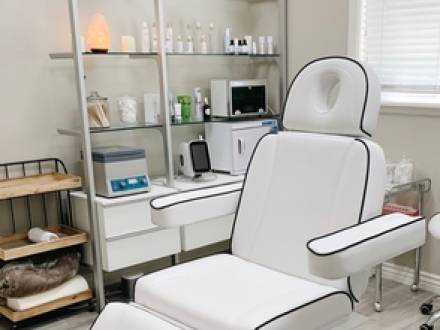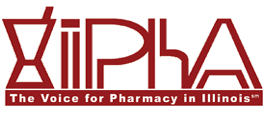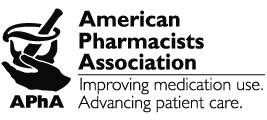Recent Blog Posts
What Happens if I Ignore a Medicare Demand Letter?
 Imagine for a moment that you are seriously injured in an accident. Maybe it is a car crash, a bike crash, or even a skiing accident. You are out of work for weeks, if not months, and your medical bills add up to many tens of thousands of dollars. Thankfully, because you are covered by Medicare, your physical care is covered, including emergency transport, hospital stays, and surgery.
Imagine for a moment that you are seriously injured in an accident. Maybe it is a car crash, a bike crash, or even a skiing accident. You are out of work for weeks, if not months, and your medical bills add up to many tens of thousands of dollars. Thankfully, because you are covered by Medicare, your physical care is covered, including emergency transport, hospital stays, and surgery.
Then, imagine you get a settlement check from the person or party responsible for your injuries: a drunk driver, a reckless biker, a ski resort that negligently left a dangerous slope unmarked. You use this settlement to cover the expenses you accumulated while seeking treatment. You may never be the same again, but you feel like you are finally out of the woods.
Then you receive a letter from Medicare in the mail. They know you received that settlement check, and they want the money back that they spent on your healthcare. You only have 30 days to respond before they start adding interest to the money they say you owe, and, worse, they can go after your income and even your assets if you do not pay.
Can You Lose NABP Accreditation?
 For specialty pharmacies, wholesale drug distributors, and other pharmaceutical businesses, accreditation from the National Association of Boards of Pharmacy (NABP) is a crucial credential that demonstrates compliance with industry standards. However, NABP accreditation is not permanent, and failure to meet strict ongoing standards can result in revocation.
For specialty pharmacies, wholesale drug distributors, and other pharmaceutical businesses, accreditation from the National Association of Boards of Pharmacy (NABP) is a crucial credential that demonstrates compliance with industry standards. However, NABP accreditation is not permanent, and failure to meet strict ongoing standards can result in revocation.
Understanding the most common reasons pharmacies and distributors lose accreditation can help businesses avoid expensive mistakes. If a business is at risk of losing its NABP accreditation, our experienced Illinois NABP accreditation attorney with The Law Offices of Joseph J. Bogdan, Inc. can help address compliance issues and take corrective action.
What Should MedSpa Owners Do if They Get a Complaint?
 Most business owners have legitimate concerns about whether complaints, true or false, could negatively impact reputation and revenue. In a worst-case scenario, a complaint can trigger an investigation or public outrage that results in a business’s closure.
Most business owners have legitimate concerns about whether complaints, true or false, could negatively impact reputation and revenue. In a worst-case scenario, a complaint can trigger an investigation or public outrage that results in a business’s closure.
Medical spas or med spa owners and operators are at particular risk of dangers stemming from patient complaints. Whether the investigation comes from the Illinois Department of Financial and Professional Regulation (IDFPR), the Office of the Illinois Attorney General, or even the police if the complaint alleges criminal conduct, med spa owners, operators, and employees need to be able to protect themselves from the implications of such complaints and investigations.
If you are a med spa owner, director, or employee and you are facing a complaint, get help immediately from someone who understands both the medical and legal landscape. Call The Law Offices of Joseph J. Bogdan, Inc. to speak with our Illinois med spa defense attorney.
Getting Your Website LegitScript Certified and NABP Accredited
 In today’s world, where much of the healthcare industry has shifted online, operating a pharmacy website comes with unique challenges. LegitScript certification and NABP (National Association of Boards of Pharmacy) accreditation are essential for online pharmacies and telehealth providers looking to build trust, comply with regulations, and avoid legal trouble. However, the certification and accreditation processes can be long and complicated, especially for first-timers.
In today’s world, where much of the healthcare industry has shifted online, operating a pharmacy website comes with unique challenges. LegitScript certification and NABP (National Association of Boards of Pharmacy) accreditation are essential for online pharmacies and telehealth providers looking to build trust, comply with regulations, and avoid legal trouble. However, the certification and accreditation processes can be long and complicated, especially for first-timers.
As an Illinois professional license defense attorney who is also a pharmacist, Attorney Bogdan understands the complexities of the LegitScript and NABP processes better than most. His dual background allows him to help clients navigate the certification requirements and defend them if they encounter compliance issues.
What Is LegitScript Certification?
LegitScript is the gold standard for certifying online healthcare businesses, including pharmacies, telehealth platforms, and substance abuse treatment centers. It ensures that these businesses comply with federal and state laws, as well as industry best practices. Without LegitScript certification, major platforms like Google, Facebook, and Visa may block your website, ads, or payment processing.
Can You Fight a Medicare Demand Letter?
 Getting a letter in the mail from Medicare demanding payment can be confusing, frustrating, and overwhelming. What is a Medicare demand letter? What are you supposed to do with it? What happens if you ignore it?
Getting a letter in the mail from Medicare demanding payment can be confusing, frustrating, and overwhelming. What is a Medicare demand letter? What are you supposed to do with it? What happens if you ignore it?
Most people have these questions after finding such a letter – also known as a Medicare Conditional Payment Letter, Medicare lien, or Medicare conditional payment notice – in their mailbox and are often afraid they may have to pay back money they simply do not have.
If you have gotten such a letter, contact the East St. Louis, IL Medicare Conditional Payment Letter attorney at The Law Offices of Joseph J. Bogdan, Inc.. In addition to helping fight Medicare demand letters for clients in Illinois, we help people from all over the U.S. with Medicare conditional repayment, including California, Texas, Florida, and Arizona. No matter where you live, call us today to get the help you need.
Illinois Attorney General Sends Cease and Desist Letters to 5 Med Spas
 In December, Illinois media reported that Kwame Raoul, Illinois’ Attorney General, sent cease and desist letters to five medical spas (med spas) in the state for prescribing compounded prescriptions of popular weight loss drugs. Additionally, Attorney General Raoul warned patients that the drugs are being marketed as well-known name-brand medications but, in fact, are unapproved versions of the weight loss products that could be dangerous.
In December, Illinois media reported that Kwame Raoul, Illinois’ Attorney General, sent cease and desist letters to five medical spas (med spas) in the state for prescribing compounded prescriptions of popular weight loss drugs. Additionally, Attorney General Raoul warned patients that the drugs are being marketed as well-known name-brand medications but, in fact, are unapproved versions of the weight loss products that could be dangerous.
Although med spa practices are increasingly popular in Illinois and offer many beneficial services to consumers, the rules about what med spas can and cannot do are rigid and practitioners may be unsure whether they are in compliance. Investigations and audits of med spas are likely to increase. If you are a medical spa owner, provider, or onsite supervising physician in Illinois and you need to protect your license and good name, call the Illinois professional license attorney with The Law Offices of Joseph J. Bogdan, Inc. now.
Can I Retake the MPJE?
 The Multistate Pharmacy Jurisprudence Examination (MPJE) is a critical step for pharmacists seeking licensure in Illinois. It tests knowledge of state and federal laws governing pharmacy practice. But what happens if you do not pass the MPJE on your first attempt? Are retakes allowed? If so, how can you improve your chances of passing next time?
The Multistate Pharmacy Jurisprudence Examination (MPJE) is a critical step for pharmacists seeking licensure in Illinois. It tests knowledge of state and federal laws governing pharmacy practice. But what happens if you do not pass the MPJE on your first attempt? Are retakes allowed? If so, how can you improve your chances of passing next time?
This blog explores remediation measures for the MPJE, how working with a pharmacist and an Illinois MPJE remediation attorney and tutor can help, and the options available if you fail the exam multiple times. If you are struggling with the MPJE, a licensed attorney and knowledgeable pharmacist can work together to help you prepare and navigate licensing requirements.
MPJE Retake Policies
The National Association of Boards of Pharmacy (NABP) allows candidates to retake the MPJE if they fail, but there are specific restrictions to keep in mind:
Do I Have a Chance of a Successful License Disciplinary Hearing?
 Facing a professional license disciplinary hearing can be one of the most stressful moments in the career of a medical practitioner. Whether you are a doctor, nurse, therapist, or other licensed professional, your livelihood and reputation may be at stake. You may wonder if you have a chance at a successful outcome.
Facing a professional license disciplinary hearing can be one of the most stressful moments in the career of a medical practitioner. Whether you are a doctor, nurse, therapist, or other licensed professional, your livelihood and reputation may be at stake. You may wonder if you have a chance at a successful outcome.
The good news is that with the right preparation and legal representation, you can significantly improve your chances of resolving the matter. Having a skilled, experienced Illinois license defense attorney on your side is the most important thing you can do. Here are some other factors that may affect the outcome.
What Factors Influence the Outcome of a License Disciplinary Hearing?
Many important factors can impact the outcome of a professional license disciplinary hearing in Illinois. These include, but are not limited to:
How Can AI Trigger Disciplinary Action Against My License?
 As artificial intelligence becomes more mainstream, professionals across the spectrum are finding uses for the technology. AI tools have become especially useful in the medical field, where physicians, dentists, social workers, chiropractors, psychologists, nurses, and other professionals employ programs to help them run their practices. However, mainstream AI technology is still being developed and can sometimes be significantly flawed.
As artificial intelligence becomes more mainstream, professionals across the spectrum are finding uses for the technology. AI tools have become especially useful in the medical field, where physicians, dentists, social workers, chiropractors, psychologists, nurses, and other professionals employ programs to help them run their practices. However, mainstream AI technology is still being developed and can sometimes be significantly flawed.
When these flaws affect a medical professional’s practice, it can trigger an investigation by the Illinois Department of Financial and Professional Regulation (IDFPR). Depending on the investigation’s findings, the IDFPR may take disciplinary action like license suspension or revocation. For more information about how you can prevent or fight disciplinary action against your license, contact a qualified Illinois professional license defense attorney.
What Can Lead to License Discipline for Social Workers?
 Social workers often work intense jobs that require them to operate in tense situations with a variety of people. Cases can be volatile and place the participants under emotional strain. This can sometimes lead to mistakes and errors that put a social worker at professional risk. Certain behaviors can jeopardize a social worker’s license by resulting in professional discipline. Whether you are facing allegations that threaten your license or you want to know how best to avoid such a scenario, speak with an experienced Illinois professional license defense attorney.
Social workers often work intense jobs that require them to operate in tense situations with a variety of people. Cases can be volatile and place the participants under emotional strain. This can sometimes lead to mistakes and errors that put a social worker at professional risk. Certain behaviors can jeopardize a social worker’s license by resulting in professional discipline. Whether you are facing allegations that threaten your license or you want to know how best to avoid such a scenario, speak with an experienced Illinois professional license defense attorney.
What Behaviors Can Lead to License Discipline for Social Workers in Illinois?
Here are some common cases that can cause disciplinary action by the Illinois Department of Financial and Professional Regulation (IDFPR) against a social worker:














